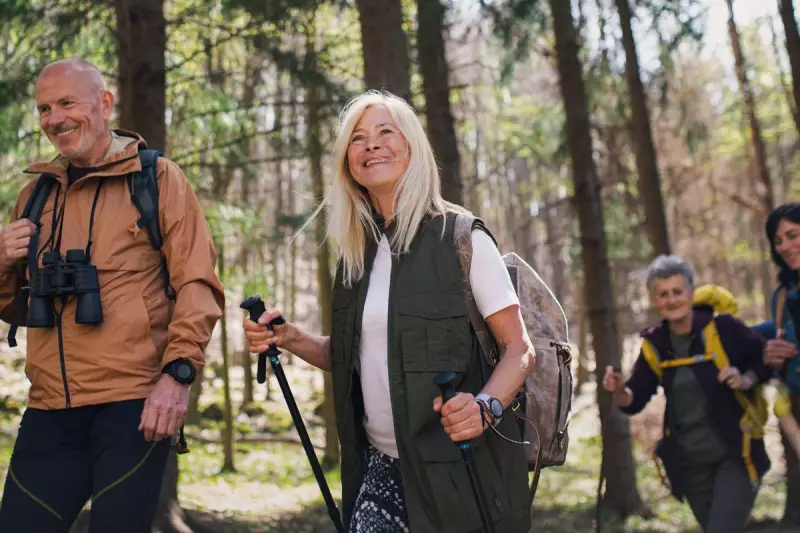
In a society increasingly obsessed with health and longevity, new research suggests that slowing down the ageing process doesn't require cutting-edge science or expensive treatments. According to experts from UK universities, simple lifestyle modifications can significantly impact what scientists call your 'biological age' - the true measure of how well your body's internal systems are functioning.
Understanding Biological Age vs Chronological Age
While chronological age simply counts the years you've been alive, biological age reveals how effectively your body's systems are operating at a cellular level. This distinction matters because research indicates that your biological age, rather than the number of candles on your birthday cake, better predicts longevity and health outcomes.
Epigenetic testing, which can be done at home with a simple saliva sample, now allows people to measure their biological age accurately. The sample is processed in a laboratory where DNA is extracted to provide insights into what's happening within the body at a molecular level.
Five Evidence-Backed Ways to Reduce Biological Age
1. Embrace Regular Physical Activity
Being physically active throughout life reduces the risk of death from all causes and directly increases longevity. Remarkably, it's never too late to start seeing benefits. One study found that sedentary individuals who adopted an eight-week exercise programme reversed their biological age by approximately two years.
The research indicates that a mixture of strength and endurance exercises done three to four times weekly, with sessions as short as 23 minutes, can significantly reduce ageing. Exercise influences DNA methylation, a process controlling whether certain genes are activated or deactivated. As we age, genes naturally begin switching off, leading to visible signs of ageing like wrinkles and grey hair. Exercise helps slow these processes, keeping important functional genes active for longer.
2. Transform Your Dietary Habits
Making healthier food choices directly reduces biological age, with particularly strong effects observed in people with chronic diseases and obesity. A study involving nearly 2,700 women found that adopting healthier eating patterns for 6-12 months slowed ageing by an average of 2.4 years.
The recommended dietary approach includes eating more fruits, vegetables, whole grains, nuts, legumes, fish, lean proteins and healthy fats while reducing intake of red meat, saturated fat, added sugars and sodium. A well-balanced diet provides antioxidants, vitamins and anti-inflammatory compounds that help cells repair damage and reduce stress on DNA, similarly influencing the DNA methylation process.
3. Prioritise Quality Sleep
Sleep represents one of the strongest predictors of healthy ageing because it affects nearly every bodily system. Good quality sleep allows the body to repair DNA, restore hormonal balance, reduce inflammation and clear cellular waste, helping the immune, metabolic and nervous systems maintain youthful resilience.
Research shows that sleep quality is directly associated with ageing speed, with people sleeping less than five hours per night having significantly increased risk of age-related diseases including diabetes, heart disease, cancer and dementia. A substantial UK study of nearly 200,000 participants found that shift workers, particularly night shift workers, had a biological age approximately one year higher than their counterparts working regular hours.
4. Eliminate Unhealthy Vices
Habits including vaping, smoking and alcohol consumption represent the strongest and most consistent accelerators of biological ageing. Smoking rapidly ages lungs by up to 4.3 years and airway cells by nearly five years according to research.
Similarly, a study examining 8,046 adults aged 30-79 found that consuming any amount of alcohol was associated with accelerated biological ageing, with higher consumption leading to faster ageing. These habits speed up biological ageing by directly damaging DNA, increasing inflammation and overloading cells with stress, causing organs to work harder and age more quickly.
5. Master Stress Management
Research demonstrates that the ability to regulate emotions and manage stress levels predicts age acceleration. One study found that working more than 40 hours weekly increased biological age by two years, likely due to stress-related factors.
Stress directly accelerates biological age through its effects on hormonal responses, DNA damage and reduced immunity. It also indirectly influences other ageing factors including diet, sleep and substance use habits. Developing positive coping mechanisms to manage stress is therefore crucial for maintaining youthful biological function.
The Broader Picture of Ageing
Emerging research indicates that additional factors including loneliness, exposure to extreme temperatures, air pollution and living environment can all influence how we age. The effects of these factors vary depending on individual genetics, duration of exposure and other lifestyle elements.
Nevertheless, this growing body of evidence provides compelling insight into how modifying even small daily habits can positively impact health and wellbeing - and in some cases, genuinely turn back the biological clock.
The research was contributed by Henry Chung, a Lecturer at the University of Essex's School of Sport, Rehabilitation and Exercise Sciences, and Charlotte Gowers, a Lecturer in Psychology, Sport and Sensory Science at Anglia Ruskin University.





